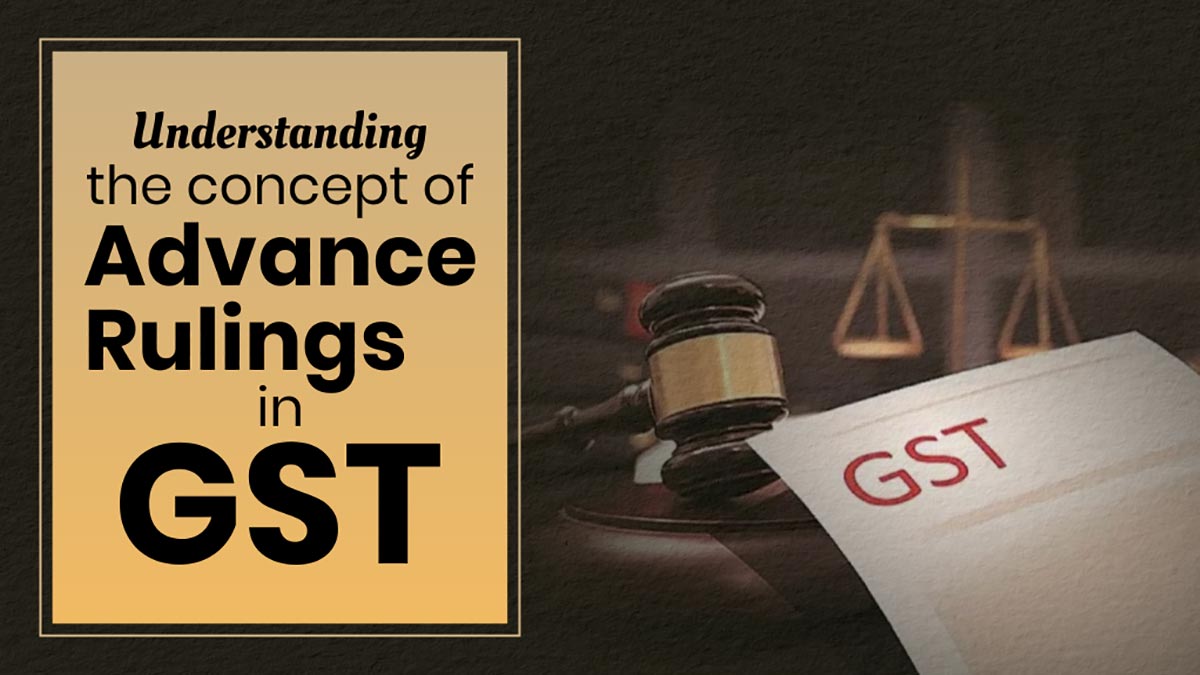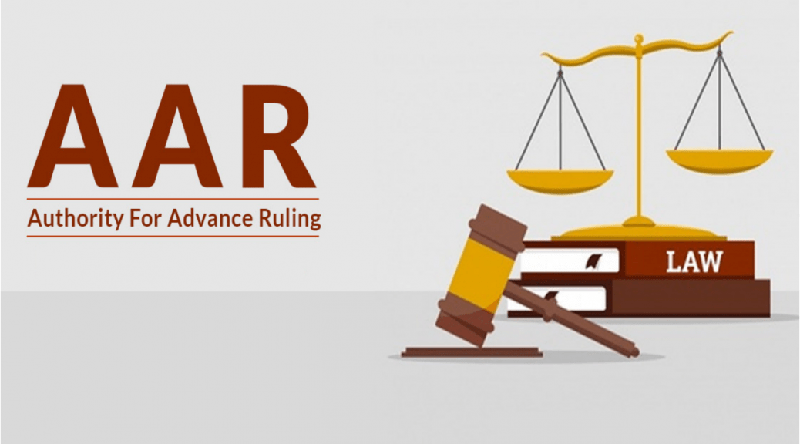
The government has introduced the concept of Advance Rulings to tackle the complexity of GST Law and provide in-depth clarifications. Any taxpayer with difficulty understanding certain GST provisions of the GST Law can request for an Advance Ruling.
This article provides a complete overview of Advance Rulings under the GST and the most recent updates issued by the government for various sections of the CGST law.
Advance ruling under GST – What is it?
An Advance ruling usually contains a simplified clarification or explanation of the tax laws. This is particularly important because the original tax laws are often written in complex language and contain references to rules, notification, order as well as other tax laws. The purpose of a preliminary ruling is to provide a clearer understanding of the tax laws so that they are more accessible and understandable.
Occasionally, organizations and even accountants may need help understanding this complicated language and provisions.
They may request a preliminary ruling, and the tax authorities will provide the necessary explanations.
Applying for a preliminary decision before starting an activity with uncertain consequences is advisable. Preliminary rulings often arise from such ambiguities, and prior clarification can help mitigate potential risks or ambiguities.
In the context of GST, Advance Ruling refers to the interpretation of the rules, laws, and regulations of GST by the tax authorities for applicants. It serves as a formal clarification to help applicants understand and navigate the complexities of the GST rules.

Why is Advance Ruling Needed Under GST?
Tax laws’ complexity, technical language, and intertwining with other laws often lead to confusion and uncertainty, making progressive tax decisions essential.
Because GST is an evolving system constantly being updated and involves changes in laws and regulations, progressive rulings are critical in providing clarity and guidance.
The GST includes numerous rules within the rules that require careful consideration of even the smallest details and governmental obligations in the practical application of the GST rules.
Given the ongoing evolution of GST, there are inherent uncertainties and regulatory ambiguity, further underscoring the importance of advanced rulings.</p.
Advance rulings help taxpayers make informed decisions for their businesses, mitigating potential legal inconsistencies and the risk of litigation.
Advance rulings help taxpayers make informed decisions for their businesses, mitigating potential legal inconsistencies and the risk of litigation.
Applying for Advance Ruling Under GST
In certain cases it becomes imperative to seek an Advance Ruling before making decisions that involve uncertain or ambiguous rules or laws. By understanding the laws and their provisions through an Advance Ruling, you can gain better clarity and insight into your next course of action and ring fence business risks.
The matters outlined in Section 97(2) and Section 100 subsection (1) of the CGST Act, 2017 include:
- Classification of any Goods or services or both
- Application of a notification issued under the provisions of the GST Law
- Ascertainment of the timing and value of supply of Goods or services or both
- Eligibility of the input tax credit for tax paid or considered to have been paid
- Determination of the responsibility to remit tax on any goods or services or both
- If the applicant is mandated to be registered
- If any specific activities undertaken by the applicant concerning any goods or services or both qualify as or lead to a supply of goods or services or both, as defined within the Act.
To request an Advance Ruling, you must complete FORM GST ARA -01 and submit it to the Authority of Advance Ruling (AAR) with a fee of Rs. 5,000. The Authority of Advance Ruling will consider the request and decide whether to accept or reject it.
It’s important to note that the preliminary ruling applies only to the applicant and not other taxpayers.

Functioning of Advance Rulings & Determinations by the Authority
Now let us look at the process of Advance Ruling decision. After you submit your application and the fees due to the GST Office, a copy of your application will be forwarded to the appropriate officer responsible for making the necessary clarifications.
Let us assume that you are dissatisfied with the decision of the AAR. In this case, you can appeal to the Appellate Authority for Advance Rulings (AAAR) within 30 days of receiving the decision. Said period of 30 days is extendable by another 30 days if appellant was prevented by a sufficient cause from presenting the appeal. Together with the appeal to the AAAR, a fee of 10,000 rupees must be submitted.
The authority must make its decision within 90 days from the date of the request. However, it is important to know that your application may be denied in two specific cases:
- If a comparable matter has already been addressed for the same applicant.
- If a comparable matter is currently pending for the same applicant.
Advanced Ruling Provisions under GST — Section-wise breakdown List
Section 97: Application for Advance Ruling
- Addresses the applicability of Advance Ruling to scenarios under the GST.
Section 98: Procedure on receipt of application
- Defines the Advance Ruling process after the application is submitted.
Section 100: Appeal to Appellate Authority
- Applicants who are dissatisfied with the AAR’s decision may appeal to the AAAR.
Section 101: Order of the Appellate Authority
- The AAAR shall render a decision within ninety days of receipt of the request for appeal.
- In case of disagreement among AAAR members, no decision will be made.
Section 102: Rectification of Advance Ruling
- The AAR may amend the Advance Ruling in the event of regulatory changes.
- If these changes lead to a company tax liability or deduction change, the GCU shall grant the taxpayer a hearing.
Section 103: Binding Effect of Advance Ruling
- The advance ruling only applies to the applicant and the authorizing officer.
Section 104: Advance Ruling Void in
- The decision shall be declared null and void if the Annual Activity Report or the Anonymous Activity Report finds that the decision was obtained by fraud, concealment of material facts, or misrepresentation.

To Sum Up
The availability of an Advance Ruling under the GST is of great importance to companies planning their future transactions and making informed decisions. Not only does it build confidence among foreign investors by providing clarity on future tax obligations, but it also provides significant benefits to businesses by protecting them from potential litigation and capital losses. The main objective of the Advance Ruling is to provide taxpayers with a clear understanding of the various laws, rules, and obligations under the GST, which serves as an up-to-date framework applicable to all.
